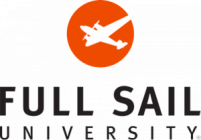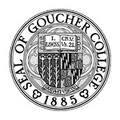For our latest Q&A with digital media schools, we spotlight a very unique Master’s Degree program in the Digital Arts. Goucher College’s MADArts offers students a limited residency Master’s program that is unlike any other in the country. Coupling the latest distance learning technologies with time-honored traditions of a liberal arts education, Goucher has steadfastly held to the belief that human relationships can be made better via technology.
Academic Director Michael Scott-Nelson is very familiar with leveraging technology to create art. Holding a Master’s Degree in Computer Music Composition and frequently found programming musical compositions and video games, Scott-Nelson and his faculty understand the crucial role that technology plays in digital art applications. He spoke to us via email about the MADArts program, its collaborative focus, world-travelling faculty and the language of business for digital artists. (This interview has been edited for length and clarity).
ACR: Michael, Goucher College’s MADArts Masters Degree program is quite unique as you’re well aware. What was the inspiration behind it and what separates it from other M.A. programs in the Digital Arts?
MSN: MADArts helps students successfully navigate the realities of making art today – not just the creative aspects, but also the legal, ethical, and business issues. A firm grasp of these complexities helps our students transform the world for the better.
Find a school
Although our first semester was in January 2011, the initial concept for a limited-residency digital arts program began over ten years ago. We saw great educational potential in flexible new modes of communication via the Internet. One of the challenges identified early on was that distance learning has the potential to be isolating. Our belief in the power of human relationships and deep interaction has consequently been an issue we have been working to address since the program’s inception.
We wanted something that would be authentic, rich, and provide diverse intellectual tools for the professional digital artist. Since then and in consultation with industry experts, the program has grown to emphasize the development of collaborative skills and competency in a wide range of artistic media. All students receive training in visual, aural, and interactive media while exploring narrative in its many contexts. Because of the increasingly fluid nature of employment today, we also provide our students with the social media / business skills required to generate creative work out of any kernel of artistic vision. Creating a collaborative environment allows students to recognize how their varying strengths might compliment the strengths of their peers.
The Goucher MADarts program addresses a diverse set of needs, so it should come as no surprise that it has grown out of a liberal-arts college. Goucher’s mission statement succinctly defines our goals: “Goucher College is dedicated to a liberal arts education that prepares students within a broad, humane perspective for a life of inquiry, creativity, and critical and analytical thinking.”
ACR: What can students expect with regards to the distance learning element of the program and does the faculty provide the close working relationships that many Master’s candidates are in search of?
MSN: As an academic program with a futurist bent, Goucher MADarts holds flexibility and versatility as guiding principles. Although any classroom can use rich tools to engage with students, MADarts’ limited-residency format has the advantage of a fresh perspective regarding pedagogical practice. We are not beholden to passive lecture-format classes alone, and encourage our faculty to utilize video chat, discussion boards, interactive teaching tools, podcasts/vidcasts, web repositories, social media, collaborative project servers, wikis, e-mail, and whatever other tools will best serve their pedagogical purposes. The connections built in these virtual spaces are further strengthened during residency periods. These residency periods consist of intensive face-to-face learning and occur twice each year. They are an excellent opportunity for camaraderie and deep immersion in subject material.
Online, asynchronous learning (that is, where students and faculty do not need to be online simultaneously) can allow for lifestyles that are impossible for a traditional student. Asynchronous online learners can hold full-time jobs, can be stay-at-home parents, can have geographic flexibility, and can generally live without the physical constraints of a traditional classroom. This is true not only for our students, but for our faculty. For example, Christopher Willits, a fantastic performing multimedia artist who tours the planet, can engage his MADarts students from anywhere there is an Internet connection. Faculty bring the energy and authenticity of active work in the arts right to their students.
ACR: MA candidates in the Digital Arts must take courses on ethics and intellectual property rights, open source, business management and more. Talk about the importance of these areas of study beyond the technical know-how that they also receive.
MSN: Working artists need to be able to have so much more than mastery of their tools. Understanding how to use a software tool is only a first step towards a career in the arts, and it is one that many people teach themselves. However, the tool is seldom the goal; the goal is to create great work and to share it with people who can resonate with that work. For centuries it has been true that the artists who find success are the ones who, by plan or by accident, manage to reach other people who love their work and are able to support them. This sometimes means being able to talk the language of business.
The language of business can also be a veil that obscures the real heart of good business, however, so let’s talk about that. All good relationships are built on trust, and economic exchange is a kind of relationship. When we pay someone for something, it is a way of saying, “I value what you are doing enough to give a part of the fruits of my labor to you.” There is potential for a deeper economic relationship when we can go a step further and say, “Please, let me help you continue what you are doing because it is good.” We want our students to be able to do more than just “get by” doing art, and to do that students need to understand the interplay between value, belief, law, and social relationships. Sometimes people forget that currency is a symbolic representation of value, and by extension, belief.
Open source is a valuable business and economic concept for us in this regard because it clearly demonstrates how to harness the power of community in an ethical way. Beyond this, open source projects are inherently educational because, with some effort, anyone can discover how a process works. Finally, open community projects make transparent how each individual contributes value to the collective process, resulting in a net benefit to all. This is in contrast to “rival” economics that focus on the benefit of one individual at the expense of another. However, while open source systems constitute a core value for us, we do not discard the good work created by people working in a proprietary space.
ACR: Who is the right candidate for the MADArts program and does admittance require they possess a B.A. in the Digital Arts?
MSN: MADarts is appropriate for any artist looking to widen their perspective, branch out, and find uniquely talented artistic collaborators. We are looking for creative people doing film, visual art, interactive media, music, and programming. Familiarity with working in the digital realm is typical but not required.
A Bachelor’s degree is required in all but the most exceptional cases. However, we recognize the value of a diverse academic background; a degree in any field needs to be supported by a relevant portfolio of high quality work.
ACR: Michael, it has been a pleasure hearing about the MADArts program for digital artists seeking to broaden their horizons and impact with a Master’s Degree. Thank you for your insight.
MSN: It was great to have the opportunity to share something I feel very strongly about. Thanks!


